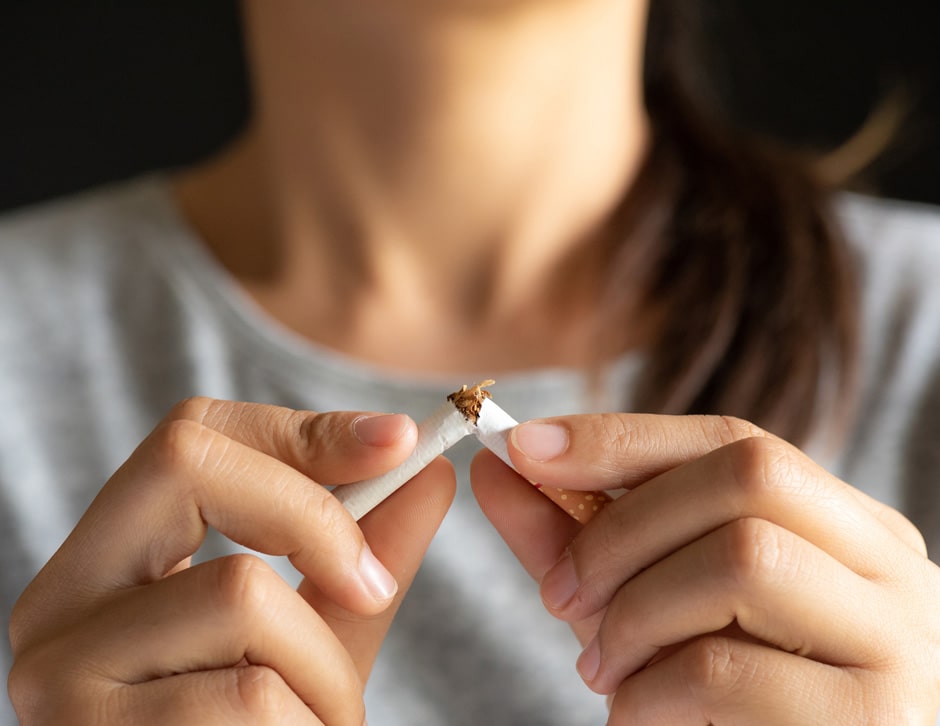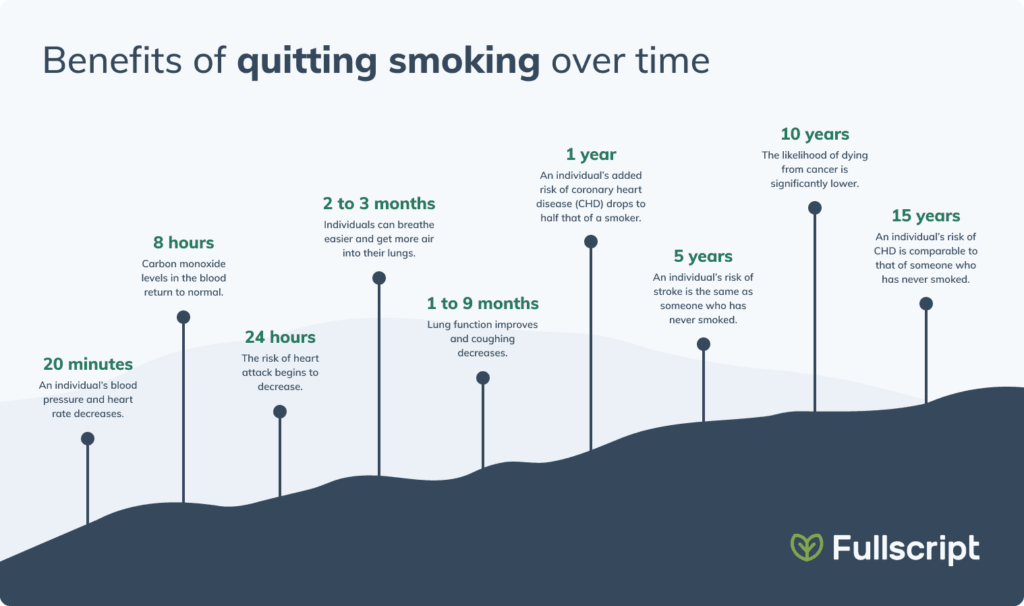
A quick overview of what we’ll cover in this blog:
- What makes smoking an addictive habit?
- How does smoking impact your health and overall longevity?
- What can you do to stop smoking?
If you currently smoke, you probably know that quitting is no easy task. Even if you don’t smoke, you’ve no doubt heard of how addicting cigarettes are and how challenging it can be to quit smoking.
Here at AgelessRx, we know that while smoking can have a negative impact on your overall health and longevity, quitting is 100% possible. That’s why we want to help you find ways to stop smoking today!
We’ll break down what makes cigarettes so addictive, how they impact your health, and what you can do to quit smoking—giving you more years to do what you love.
Why is it hard to stop smoking?
The simple answer: smoking is addictive. Cigarette companies, after all, want you to buy more of their products.
So what makes it addictive?
The culprit is a chemical called nicotine, which is found naturally in tobacco plants. When you smoke cigarettes, nicotine releases a chemical called dopamine. Dopamine is a chemical that helps communicate different messages throughout the brain. One effect of dopamine is a temporary “feel-good” feeling that can happen in seconds, creating a “rush.” This process is similar to how the brain responds to other, more addictive drugs.
So, when you feel a craving to smoke, it’s because your brain craves dopamine to create more of that “feel-good” feeling. When you try to stop smoking, you don’t satisfy the craving. This can lead to symptoms of withdrawal, such as irritability, anxiety, reduced appetite, or having a hard time focusing.
What are the longevity benefits of quitting smoking?
Smoking is the number one cause of preventable disease and death. It can cause conditions like heart disease and lung disease, both of which can impact your longevity. That means that by stopping smoking, you’re taking the first steps towards preventing conditions and improving your overall longevity and health.
Your health also starts to benefit almost immediately after you stop smoking. For example, a day after you quit smoking, your risk of stroke starts to go down. Fast forward to a year post-cigarettes, and your risk of coronary artery disease (CAD) is half what it would be if you were still smoking.
Check out the visual below to see the other ways your health is impacted when you stop smoking.
How can I quit smoking?
Strategies to help you stop smoking are usually focused on treating addiction to nicotine in a safe and healthy way. This usually includes therapy and medication.
Therapy/counseling
Certain types of therapy and support can help you quit smoking by helping you find ways to cope with the urge to smoke. This includes one-on-one coaching, online resources, or even mobile apps to help you curb your cravings for cigarettes.
Medication
The FDA has approved different kinds of drugs and medications to help people stop smoking. The two most common medications approved to help people stop smoking include the following:
- Nicotine replacement therapy. You’re probably familiar with a few of these, such as a nicotine patch or gum. These medications provide small amounts of nicotine (without all the harmful chemicals present in cigarettes) to help you slowly wean off the craving for nicotine altogether.
- Prescription medication. These medications are called “smoking cessation aids” and are designed to help curb cravings for nicotine. They work by targeting the brain directly to help reduce the craving for nicotine. You may be familiar with popular forms of some medications, such as Chantix.
Products like NAD+, which has shown promise as a potential treatment tool for addiction, may also be an option.
The use of e-cigarettes has become a popular option for people who are looking to stop smoking. However, there is little research to support the use of e-cigarettes as a tool to stop smoking.
If you’re ready to stop smoking today, talk to your doctor to make a plan today. You’ve got this!
Note: The above statements have not been evaluated by the Food and Drug Administration. This product is not intended to diagnose, treat, cure, or prevent any disease.

